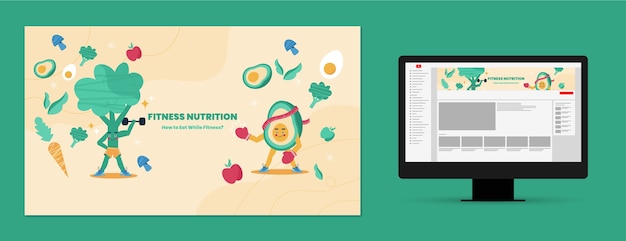
Keeping healthy isn’t as complicated as you might think – it all starts with eating right! Eating a balanced diet can keep away many chronic diseases like heart disease and diabetes, or even help manage these conditions better. “Healthy eating” might mean different things to different people, but the goal is the same: we should all aim to habitually eat foods and drinks that give us the essential nutrients we need to be strong and healthy. Wondering how you can kick-start your journey to healthier eating and make it a long-term commitment? Let’s look at some expert advice.
Good nutrition is the foundation of good health. It’s about eating foods packed with the important vitamins and minerals our bodies need, while also keeping an eye on fat intake. For many of us, choosing high-fiber foods is a smart move. And whether it’s apples, bananas, or broccoli, everyone can get a health boost from eating at least five portions of fruits and vegetables a day. Good nutrition also means paying attention to portion sizes so we don’t eat more calories than we burn each day.
A healthy diet combined with regular exercise is the key to good health. But don’t fall for quick-fix diets that promise fast results yet are hard to stick to and might be harmful. Instead, go for a diet that you can maintain in the long run, which includes nutritious foods like roti. Knowing the calories in roti can also be useful.
If you find yourself saying “yes” to any of these questions, it might be time for a diet makeover. You might want to have a chat with a healthcare professional if:
– You’ve been warned by your doctor about a health condition or risk such as high blood pressure or high cholesterol.
– Your doctor has said that better nutrition could help improve your condition.
– There is a history of diseases like diabetes, cancer, heart disease, or osteoporosis in your family.
– You’ve been gradually gaining weight or are currently overweight.
– You’re unsure about what foods you should be eating or whether you should be taking dietary supplements.
– You think talking to a dietitian could help.
If you’re thinking of adopting healthier eating habits, here are some simple tips. But remember, always discuss with your healthcare provider to track your progress:
1. Check your current diet: Are you eating four or five portions of fruits and vegetables every day? Are you getting enough calcium? Are whole grains and high-fiber foods part of your diet? If you’re doing good in these areas, keep it up! If not, try to include more of these foods in your daily meals.
2. Keep a food diary: Writing down what you eat and drink each day can give you a better understanding of your diet and point out areas that might need some changes.
3. Get advice from a dietitian: A dietitian can give you tailored advice, especially if you have certain health issues.
Eating less of unhealthy fats is a good goal for everyone. If fatty foods are a big part of your diet, consider:
– Baking, grilling, or roasting meat instead of frying. Take off the skin from chicken or turkey before cooking. Try to include fish in your diet at least once a week.
– Cutting down on extra fats like butter on bread or high-calorie salad dressings. Look for low-fat or fat-free alternatives.
– Eating more fruits and vegetables by adding them to your meals and snacks.
– Reading nutritional labels on food products before buying them. Ask your healthcare provider or dietitian if you have trouble understanding these labels.
– Watching out for hidden fats and large portions when eating out.
Drinking enough water is an important part of staying healthy. Choose drinks with no or low calories like water or tea. Sugary drinks like fruit juices, sodas, energy drinks, flavored milk, and sugary teas add unnecessary sugar and calories to your diet.
Just remember, there’s no magic way to improve nutrition. Eat a wide variety of whole foods for the biggest benefits. Be wary of diet plans or products that promise amazing results – they might be too good to be true. Many people in ads get paid for their endorsements, and they often don’t tell you about potential side effects, complications, or the chance of gaining back lost weight.
Set realistic diet goals, whether it’s cutting back on unhealthy fats or making small dietary changes. Your health is always worth it! You’re on a journey, and it’s one worth taking.
Author Bio:
Anamika Singh is a content marketer at Rotimatic and the proud mom of two kids. She is known for her insightful content on parenting, cooking, home appliances, and taking care of a home. Anamika brings a ton of hands-on experience to her work. When she’s not creating content or looking after her family, Anamika loves to cook up a storm in the kitchen and lose herself in a good book. Her practical advice and easy-to-follow tips make her a great resource for her readers.


